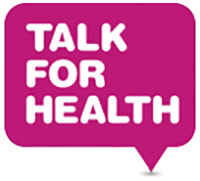As some of you may know, our Director Roy Langmaid is the co-founder of a now global co-creation (also known as co-production) agency – C Space – who have kindly been working with us to develop a talk for workplace health offering. Sharon Powell, Associate Director at C Space, recently wrote an article for Mad World and we wanted to share it with you:
Just recently, I overheard a phone conversation between a young woman and an unknown confidant. She had all the hallmarks of a person under stress. And it was clear that the cause of this was down to a very strained relationship with a more senior person in her office. I couldn’t help but listen to her list of example after example where she felt put-upon, undermined and undervalued. And the more she spoke, the more stressed she became.
Everywhere you look there are casualties of modern society. Whether driven by the unrealistically curated experiences of social media or the ever growing pace of change and demands of modern workplaces, people are stressed. They’re anxious, strung out and struggling to cope. Their mental health is under pressure and mental health services are exhausted.
The mental health statistics are scary.
One in four people will experience mental health problems in any given year and 75% will get no treatment. The NHS only treats 16% of people who need therapy and one in six people nationwide are on anti-depressants, often because therapy is inaccessible.
We are in the midst of an epidemic of mental distress.
In a speech delivered to the annual Charity Commission in January 2017, UK Prime Minister Theresa May talked about a radical upgrade in prevention and public health, “[We] plan to transform the way we deal with mental health problems: not in our hospitals, but in our classrooms, at work and in our communities…”
At the moment, the ongoing stigma surrounding mental health is that you need to have a formally diagnosed issue to seek support. The problem with this is that the previously mentioned 75% statistic doesn’t necessarily mean a psychotic episode, suicidal ideation, or having a panic attack. Symptoms like: experiencing chronic anxiety before entering meetings, a constant low mood with little desire to accomplish anything – these are the kinds of everyday concerns that the majority of working professionals will face, but won’t necessarily seek support for. And this presents a huge challenge for most businesses.
How can businesses combat the stigma of mental health?
Let’s do away with labels like ‘psychotherapy’, ‘mental health’ and ‘depression’. I work for a customer agency called C Space, and we have this philosophy that the businesses that act more human perform better than their competitors. They know how to connect better with their customers and understand them on a deeper level. So why not apply this principle to the way we see mental health?
With that in mind, organisations can have honest and open conversations about ‘low mood’, not ‘depression’, or ‘emotional wellbeing’, and not mental health.
And make it goal-oriented too. The learnings one can gain from Cognitive Behavioural Therapy (CBT) are indispensable to having a healthy perception of your world around you. So let’s do away with terms like CBT, and just talk about improving your communication, or your listening skills. That way, organisations can begin to implement them as part of their Learning & Development initiatives, and combat mental health problems by vaccinating against them in actionable and tangible way.
Don’t treat. Vaccinate instead.
And that’s the crucial point. It’s not about curing mental health problems. It’s about incoluating against them, so that they won’t resurface, and that people can live healthier, happier lives. Organisations like Talk For Health are already doing this – by delivering peer-to-peer counselling programmes that demystify therapeutic talk, making it more accessible, human and useful in every day life. Having social enterprises like that, where individuals are taught how to talk truthfully, listen and respond empathetically, is exactly the kind of vaccinations that businesses need to improve workplace wellbeing.
And that brings me back to the girl I overheard on the phone. No matter how kindly her confidant was, she didn’t appear to be helping the speaker much.
Imagine if the person on the other end of the phone was someone who was trained in how to listen and feedback in a way that was validating, calming and creative. Imagine if we were all surrounded by people, be they colleagues, friends or people in the community who knew how to listen well. And imagine that this encouraged us to share our truths more authentically and more confidently.
It might make for a less stressful, less lonely and more connected workplace.


Leave A Comment